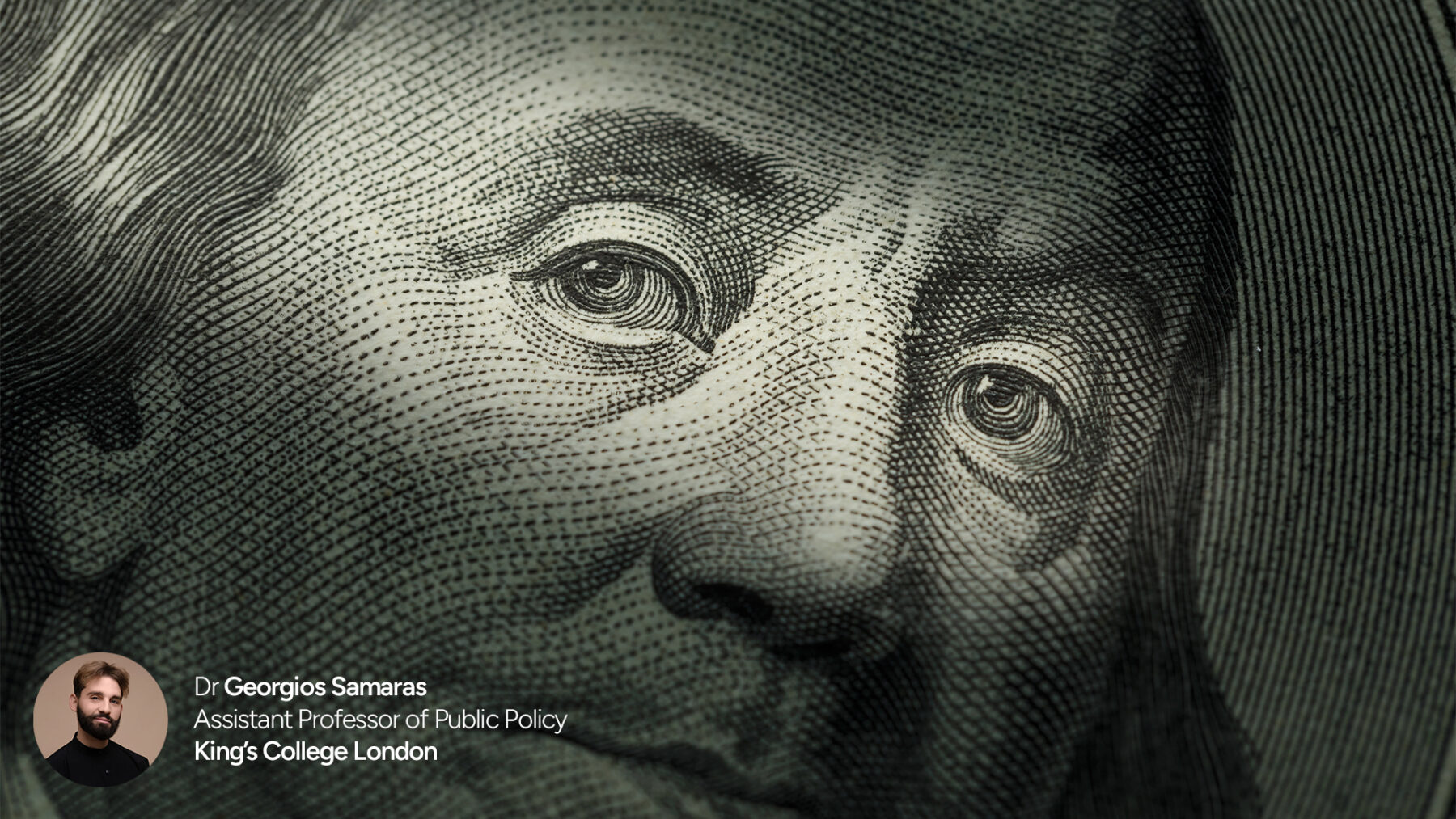


Dr Georgios Samaras
Assistant Professor of Public Policy
King’s College London
As an Assistant Professor of Public Policy at King’s College London, I investigate democratic violations in Western societies and human-rights abuses connected to migration, asylum and LGBTQ+ issues. Yet, joining Millionaires for Humanity represents more than an academic extension: it is an acknowledgement of my own status within a financially privileged minority and a commitment to publicly and decisively confront the unchecked, global accumulation of super-rich wealth.
The importance of evidence
Rigorous academic inquiry underpins effective policy design. Empirical studies of wealth taxation consistently show that progressive levies can curb extreme income concentration without hampering innovation, while public-finance theory offers guidance on optimal rate structures and strategies to mitigate capital flight and tax-base erosion. With ”tech bro” oligarchies driving a sharp rise in inequality, translating these insights into concrete proposals—through ex ante revenue simulations and cost–benefit analyses—has never been more urgent.
Yet solid evidence alone rarely secures broad support. In an era defined by the rollback of workers’ rights under neoliberal orthodoxy, dense academic treatises often fail to reach or convince the wider public. Local organising struggles to build sympathy—even in the face of humanitarian crises and ongoing genocides—while complex fiscal arguments can overwhelm readers and listeners. The central question, then, is how to render data both accessible and persuasive without sacrificing analytical rigour.
The answer lies in combining innovative tools with strategic narrative framing and targeted communication. Consider the Tax Justice Network’s mapping of offshore wealth: by marrying geospatial analytics with interactive dashboards, they have transformed opaque financial flows into clear, engaging stories. Their work demonstrates how shell-company structures and emerging legal instruments conceal assets, thereby undermining regulatory oversight and public trust. This model demonstrates how making hidden information visible can galvanise understanding—and, ultimately, the political will—to enact meaningful wealth-tax reform.
The elephant in the room and future action
Building on the power of transparency and narrative, some of my recent engagements—such as those at Delphi Economic Forum X—have revealed a persistent obstacle: collective denial among the world’s financial elite. Too often, influential policymakers dismiss rising inequality as simply the price of meritocracy or market efficiency. History, however, warns us that vast, unaddressed disparities fuel social fragmentation and trigger direct or indirect market corrections—whether through financial shocks or political upheaval. In the West, growing authoritarian tendencies, stoked by perceptions of injustice, undermine both democratic legitimacy and market stability. Path-dependent institutions resist redistributive reform, and debates over fair shares remain unresolved. Yet if the super-rich continue to amass wealth without proportional social contribution, the spectre of mass mobilisation—or even violent backlash—will only grow.
Building on the need for clear, evidence-based action, networks such as MfH and Patriotic Millionaires must tackle the inertia of political elites head-on. Lobbying should rest on robust cost–benefit frameworks and scenario modelling that survive rigorous legislative scrutiny. International coordination is essential to close the loopholes enabling capital flight, while transparency measures—public registers of beneficial ownership and harmonised OECD reporting standards—must underpin genuine accountability.
Broadening the ranks of high-net-worth members is vital: it confers moral authority and keeps the spotlight trained on our cause. But visibility alone won’t secure reform. We must also guard against self-styled financial pundits and vested interests who discredit such narratives. In an era of unchecked inequality eroding economic foundations and fuelling outrageous scandals, the rich must step up—rallying behind a bold, unambiguous agenda without any taboos. It is what it is. The surge of protectionism sweeping the US and Europe is set to spark a catastrophic downturn in 2025, and without decisive leadership from those who hold such wealth, we will all pay the price.
"*" indicates required fields